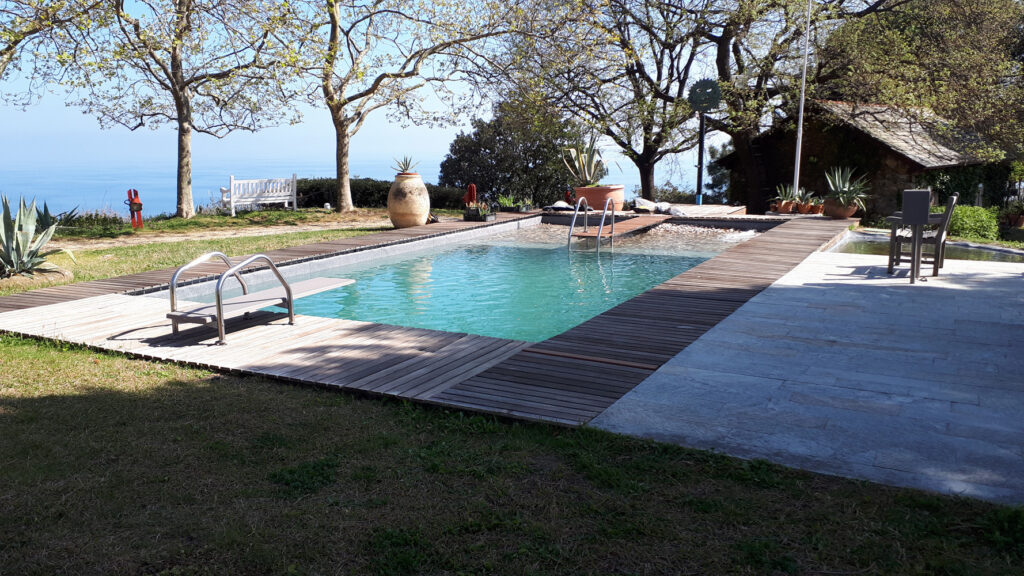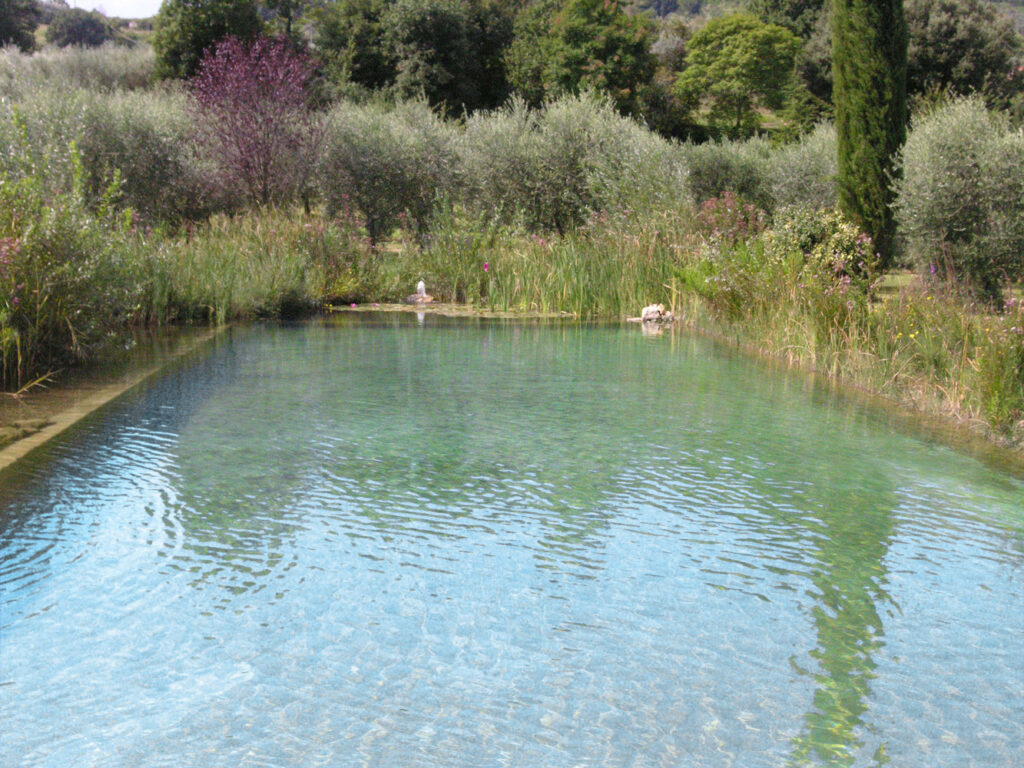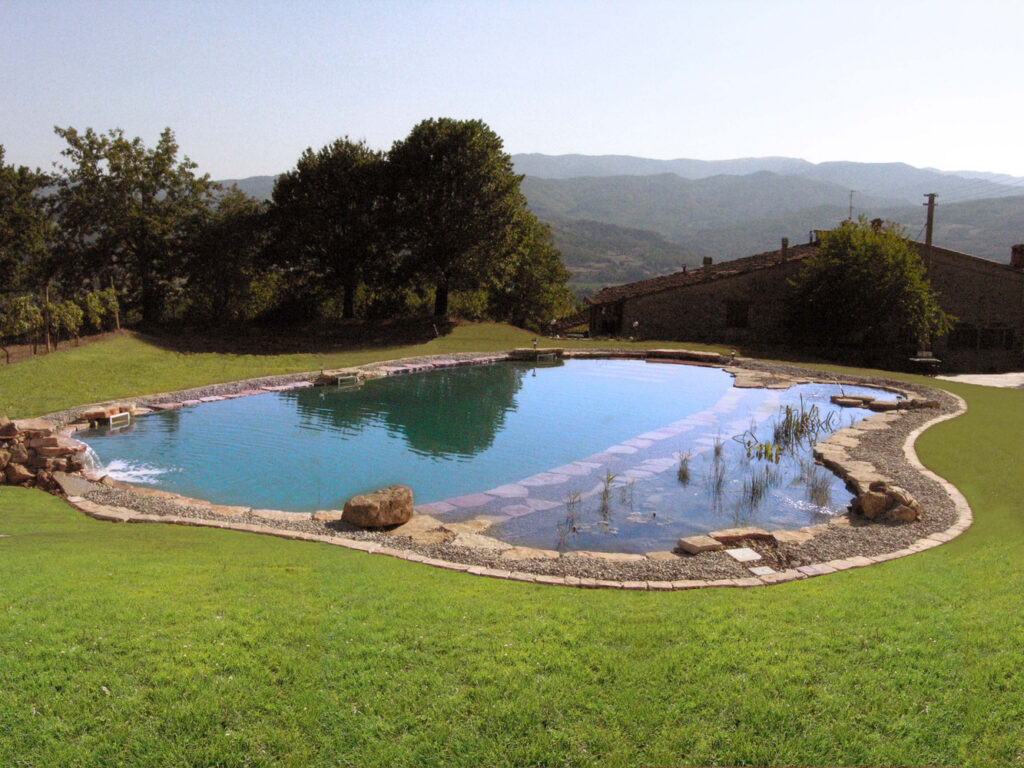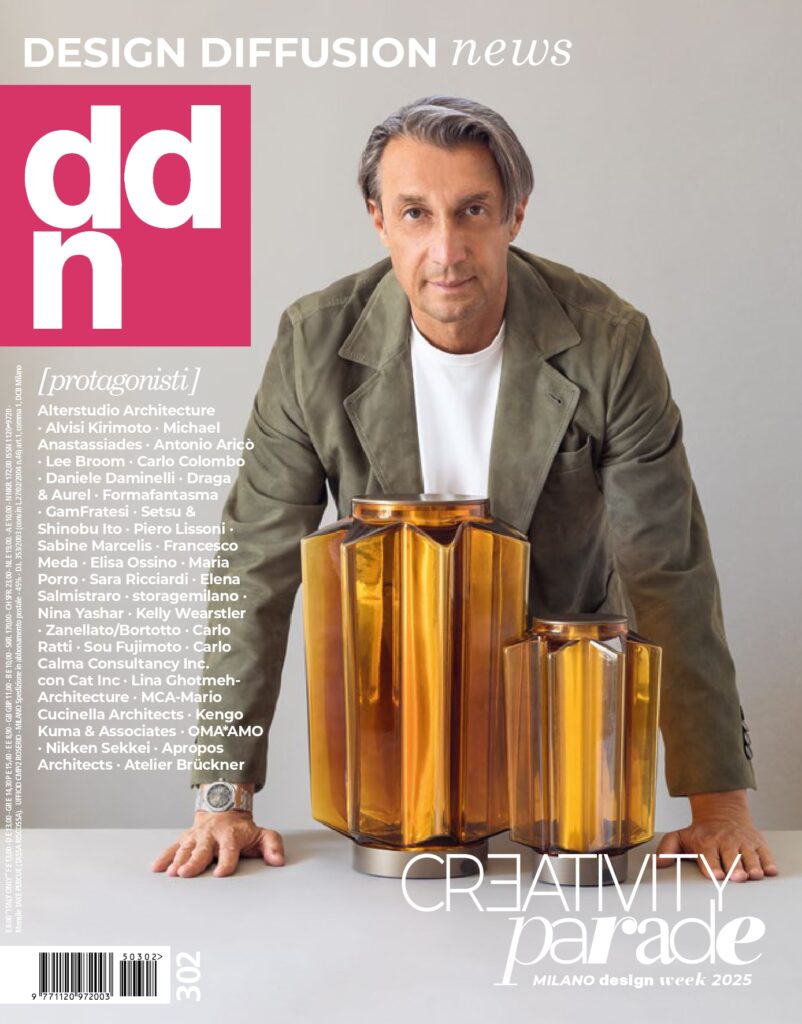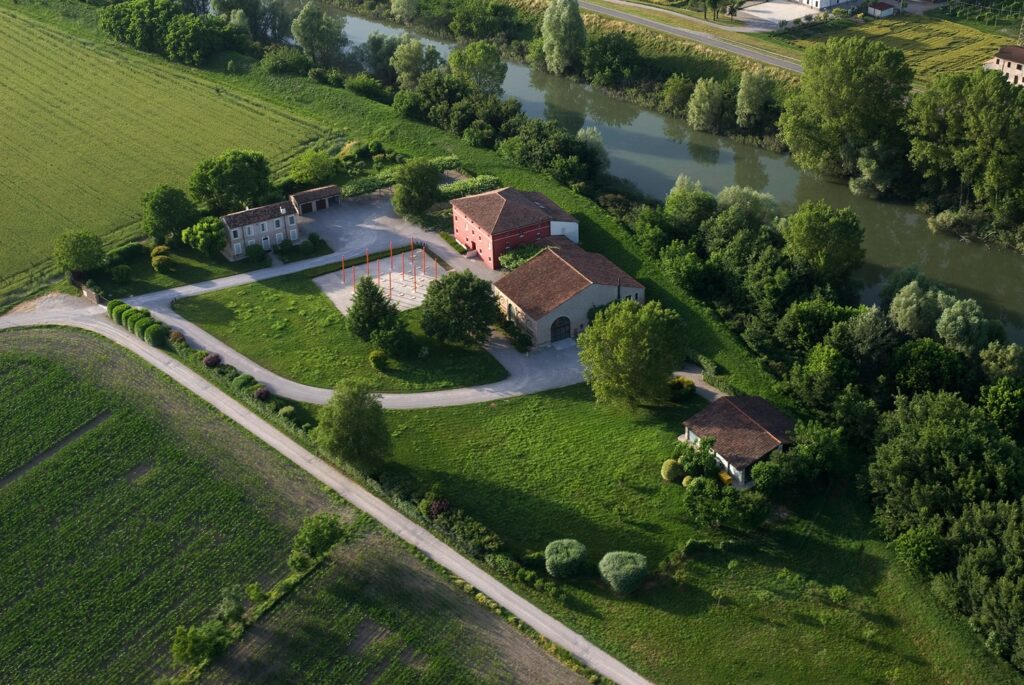Bio-ponds and bio-pools are eco-sustainable water basins relying on natural principles to avoid the use of chemical products
Eco-sustainability is the key word in the projects by landscape architect Vera Luciani. Each of her works perfectly adapts to its environment, being a perfect mix of design and nature. This is the origin of bio-pools and bio-ponds, water basins suitable for swimming, ideal for both private homes and hotels & resorts.
What is a bio-pond?
A bio-pond is an eco-sustainable freshwater basin designed for bathing, able to optimize the phyto-depuration capacity of aquatic plants through a closed-loop system that regenerates naturally, quickly creating a habitat rich in biodiversity.
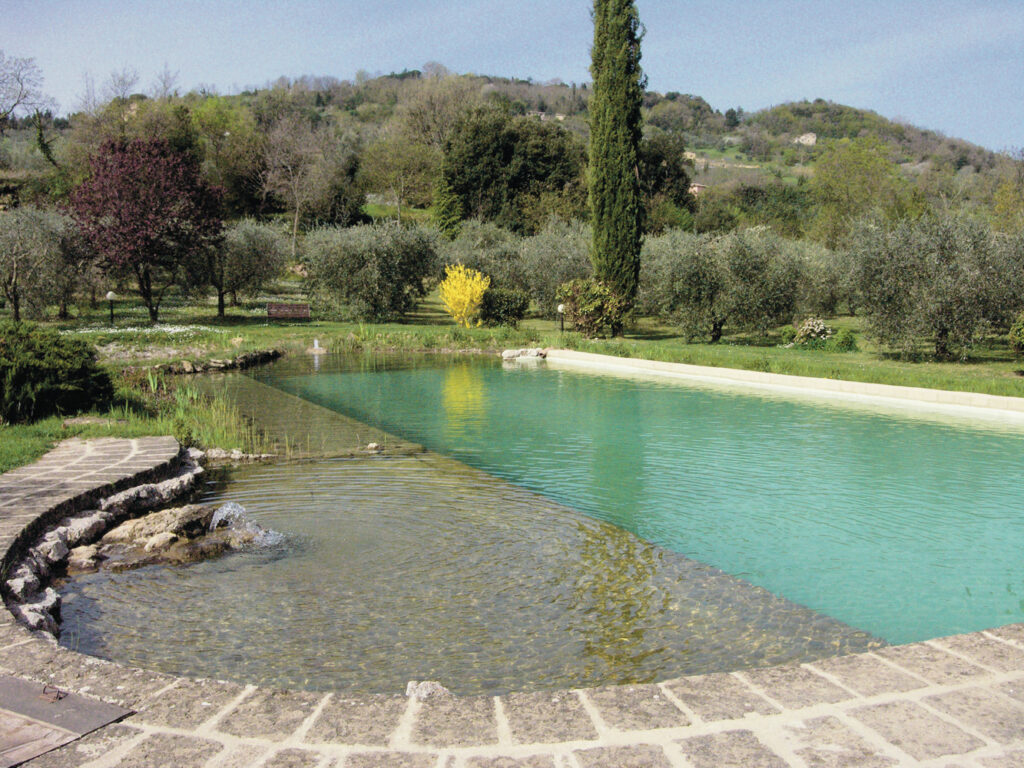
It consists in two areas: the larger is designed for bathers, the other for aquatic plants necessary for water purification. The two tanks are connected by a closed-loop system, so as to give oxygen to the entire system, avoiding the use of chlorine and other chemicals.
What about a bio-pool?
The concept of a bio-pool is different. In this case water is purified and disinfected by salt. Thanks to this system, salinity stays low, making the experience of the bath unique, comfortable and healthy for the skin.
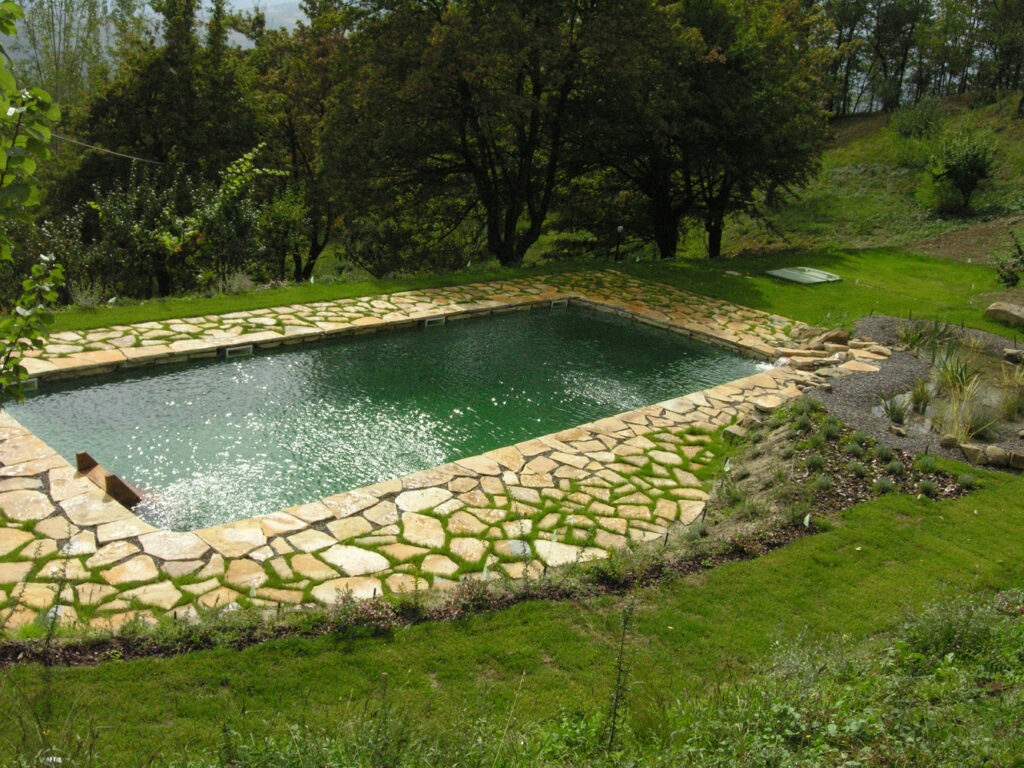
It is enough to dilute a small amount of salt in the water (4g per liter) at the beginning of the season and to install an electrolyzer, which, through special electrolysis cells, naturally breaks down the salt molecule (sodium chloride) and releases the amount of chlorine required to oxidize organic residues and destroy algae, fungi and bacteria.
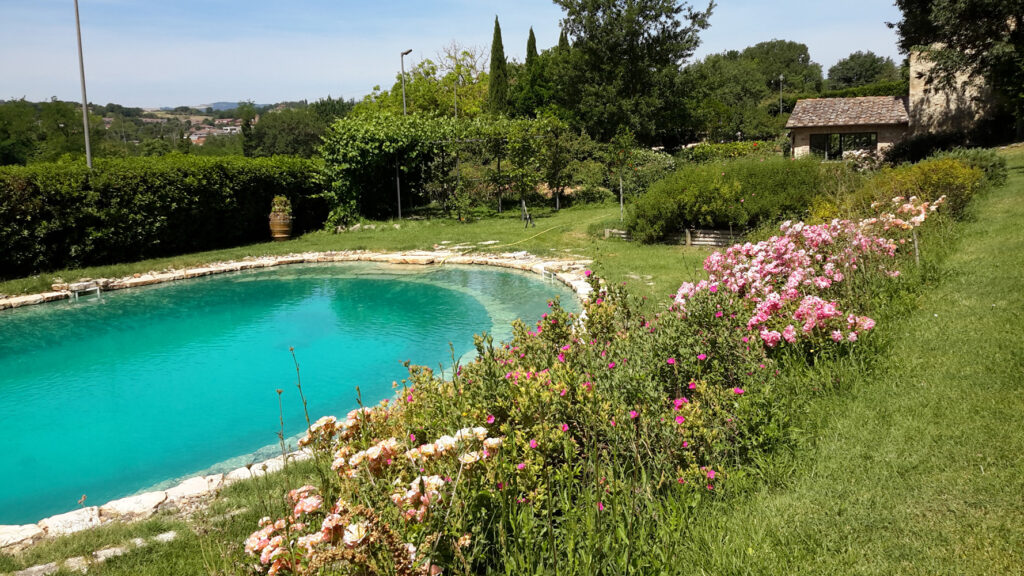
As a result, water stays clean and safe for bathing while salt, after the first addition, is added only if its concentration decreases because of filter cleaning. [Giuseppe D’Orsi]
